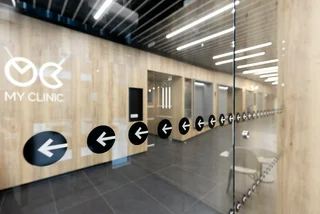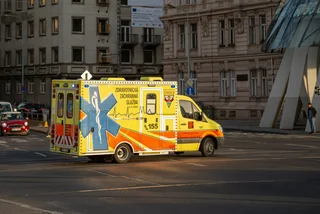The Czech Republic is currently facing a critical shortage of mental health professionals to help children who are increasingly facing anxiety and depression, addiction and eating disorders, and suicidal thoughts.
Data from the General Health Insurance Company (VZP) shows that the number of patients at child psychiatrists' offices has increased by half since 2010 with 60,000 child psychiatric patients in 2019. The number rose even more during the two years of the Covid pandemic.
The city of Prague is taking steps to address the issue with the opening of a new mental health center for children and adolescents to provide families with comprehensive health and social support in the field of mental health.
"The development of a network of mental health centers for children in individual regions is one of the priorities of the National Action Plan for mental health care. Such a service has been piloted in Prague for the past two years, and its necessity is absolutely indisputable given the large increase in the psychological burden on children and young people," said Pavel Novák, regional consultant for the reform of mental health care.

Located in Prague 7 Bubeneč, and opening with an open-door day Sept. 13 (12 p.m. to 4 p.m.), the Mental Health Center for Children and Adolescents in Prague is part of the Dům tří přání (House of Three Wishes) organization. The organization says it, "Creates a safe space for venting emotions, sharing experiences and finding strengthening resources for the child and parents." The target age group is children and adolescents up to age 18.
The multidisciplinary center aims to help prevent the development of mental illness in young people, improve the quality of life of children with already diagnosed mental illness, support the recovery of children after hospitalization in a psychiatric hospital, and also facilitate parents' understanding of the child's psychological state.
Support is given via regular one-on-one sessions and group programs that provide comprehensive health and social support provided by experts from many professions.
The ultimate aim is to mitigate the threat to the future development of children and young people in the area of mental health.
Government commissioner for human rights Klára Šimáčková Laurenčíková told the Czech News Agency earlier this year that due to insufficient capacities, it is necessary to help the children in danger before they actually need a psychiatrist's help.
"As a WHO study shows, every classroom contains three to four children who are at high risk of mental illness," Laurenčíková said adding that many serious mental diseases do not have to develop at all if the family gets help in time.
Children and adolescents most frequently face anxiety and depression, addiction, and eating disorders, and the number of suicide attempts has also increased.
VZP says that the number of girls between 15 and 19 with eating disorders has increased by 57 percent over the past five years. Suicide is the second most frequent cause of death among people under 24, the health insurance company stated.
According to Laurenčíková, pediatricians, teachers, police officers, and other professionals that work with children should recognize the symptoms of a child in danger and know who to contact. There is, however, currently a significant lack of child psychiatrists and therapists in Czechia.
The newly opened Prague center is a multidisciplinary organization that allows for health and social professionals such as child psychiatrists, psychologists, psychiatric nurses, social workers, special educators, and family counselors to work in close cooperation to maximize the effectiveness of care and reduce hospital rates among young people.
English-speaking mental health resources for kids: The center has confirmed to Expats.cz that it currently offers support only in the Czech language, consultations in English are available at its Delta Family Center, to a limited extent. Looking for support for a child suffering from mental health issues? Prague Integration, Inbaze, and the Institute of Neuropsychiatric Care are good places to start. You can also see our directory listings here.
Milena Johnová, head councilor for social policy and healthcare says multidisciplinarity of specialized mental health centers is the basis of effective psychiatric care.
"In the pilot mode, the tested service would be sorely missed, which is why we decided to further develop this unique team caring for the mental health of children and young people. In addition, other such teams should be created in the coming years," she said.
The most common reasons for using the service were anxiety, depression, eating disorders, self-harm, and suicidal tendencies.
The service is provided free of charge for child clients with permanent residence in Prague, it will be paid for from public health insurance, subsidies and grants. The Center for Mental Health for Children and Adolescents in Korunovační Street in Prague 7 can be contacted by professionals from social services, health services, as well as schools or parents directly.
Statisitcs show that there are nine psychologists per 10,000 people in the Czech Republic. A Czech family must wait four to six months for a meeting with a child psychologist. The situation in the neighboring countries is better. Slovakia has 16 psychologists per 10,000 population, and Germany 27.
Moreover, such care is often costly since, compared to other European countries, psychotherapy is often not covered by health insurers in Czechia, unlike a psychiatrist's care.
"Psychotherapy is inaccessible to many since a Czech must work for eight and a half hours to earn for one hour with a psychologist, and thus Czechia is placed the ninth out of the 25 surveyed countries," the Czechia in Data project said in a press release.












 Reading time: 4 minutes
Reading time: 4 minutes 



 English
(Proficient)
English
(Proficient)

























